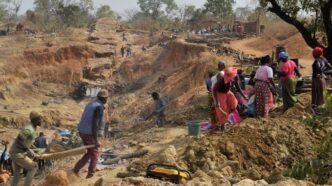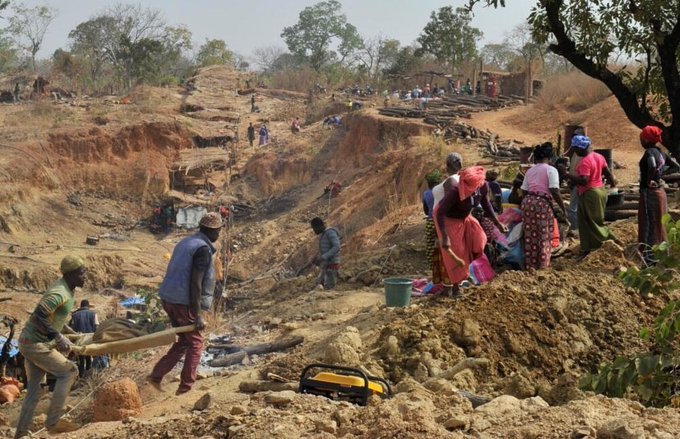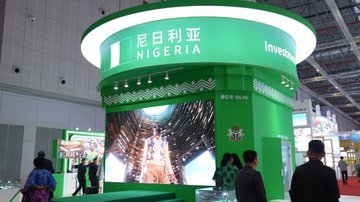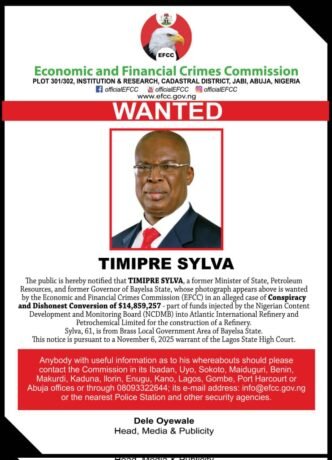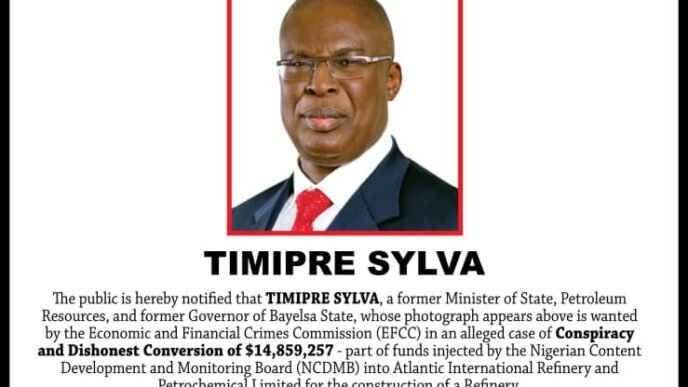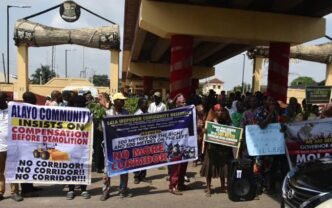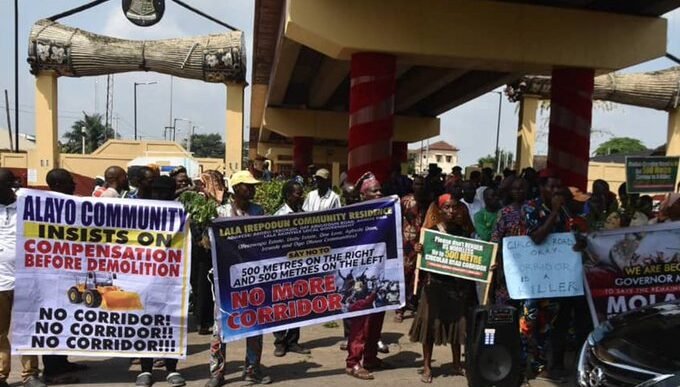Makurdi | November 6, 2025
The Benue State Government has confirmed the discovery of significant deposits of gold and aluminium in Kwande Local Government Area and other riverine parts of the state, describing the find as a major breakthrough with the potential to transform the region’s economy and industrial capacity.
The announcement was made on Thursday in Makurdi by the Commissioner for Industry, Trade and Investment, Tersoo Kula, following the completion of a preliminary geological survey and mineral mapping exercise conducted across several local government areas.
A New Chapter for Benue’s Natural Resource Development
According to Commissioner Kula, the exploration team uncovered commercially viable deposits of both gold and aluminium ore in the Kwande axis and along adjoining river valleys.
“The results from our recent geophysical surveys and field assessments confirm the presence of gold and aluminium in Kwande and other riverine locations. This is a significant milestone for Benue State,” he said.
Kula added that the discovery reinforces the state’s ambition to diversify its economy beyond agriculture by unlocking its solid mineral potential.
“Benue is not just the food basket of the nation — it is also richly endowed beneath the soil. We now have scientific evidence to back up decades of local speculation about the presence of precious and base metals,” he said.
Government Plans Public-Private Partnership for Exploration
The commissioner disclosed that Governor Hyacinth Alia’s administration is already in talks with both domestic and international mining companies to explore and develop the newly identified sites under a public-private partnership (PPP) framework.
“We are adopting a model that ensures transparency, community participation, and environmental sustainability. The goal is to generate jobs, revenue, and industrial opportunities without harming local ecosystems,” he said.
He explained that the government is prioritizing the formalization of artisanal mining activities already taking place in parts of Kwande and Katsina-Ala to prevent environmental degradation and loss of revenue.
“We want to move away from illegal and unregulated mining to a structured system that benefits both the people and the state,” Kula added.
Kwande: The New Frontier of Mineral Wealth
Kwande, located in the northeastern flank of Benue State, shares boundaries with Taraba and Cross River States and has long been known for its hilly terrain, rich clay soil, and forest reserves.
The discovery of gold and aluminium adds to the area’s growing strategic importance, potentially positioning it as a mineral development hub in Nigeria’s North-Central zone.
Community leaders in the area welcomed the announcement, saying it could usher in long-awaited development if properly managed.
Chief Tersoo Mbayor, a traditional leader from Kwande, expressed optimism that the discovery would “bring hope and employment to thousands of youths.”
“For years, our people have lived with poverty despite abundant natural wealth. If government handles this well, Kwande could become a model for responsible mineral development,” he said.
Economic Impact and Job Creation Potential
Experts say the discovery could significantly boost Benue’s internally generated revenue (IGR) and contribute to Nigeria’s broader mineral diversification agenda.
Dr. Isaac Nyam, a mining economist at the University of Jos, said the development could “redefine Benue’s economic landscape.”
“Gold exploration can attract investment in refining, jewellery manufacturing, and foreign exchange earnings. Aluminium, on the other hand, supports construction, energy, and automotive industries,” Nyam explained.
He estimated that the two minerals combined could create over 20,000 direct and indirect jobs if properly developed.
Environmental and Regulatory Safeguards
The Benue State Ministry of Environment has assured that all mining operations will comply with national and international environmental standards.
Commissioner for Environment, Dr. Kyado Tiza, said the government will not compromise on environmental impact assessments (EIA) before granting mining licenses.
“We have seen the environmental damage caused by illegal mining in other states. Benue will not follow that path. Every project must undergo a full EIA, community consultation, and compensation plan,” Tiza stated.
He added that the state will also establish a Mineral Environmental Monitoring Task Force to oversee activities in the new mining zones.
Federal Collaboration and Licensing
The Benue government has begun consultations with the Federal Ministry of Solid Minerals Development to secure exploration and mining licenses for prospective investors.
Officials from the Nigerian Geological Survey Agency (NGSA) are also expected to carry out confirmatory sampling to verify the scale and quality of the mineral deposits.
A senior NGSA source told reporters that early indications suggest “medium to high-grade” aluminium ore and “alluvial gold concentrations” along river channels.
“If subsequent laboratory analysis confirms the estimates, Benue could emerge as one of the leading states for both gold and bauxite-type aluminium minerals in the Middle Belt,” the source said.
Governor Alia’s Reaction
Governor Hyacinth Alia, in a brief statement through his Chief Press Secretary, Sir Kula Tersoo, described the discovery as “a blessing to the people of Benue” and pledged that the proceeds from mineral development would be managed transparently.
“We will ensure that every community benefits directly from this discovery. Benue’s natural wealth will be used to uplift our people, not enrich a few individuals,” the governor said.
He emphasized that his administration is finalizing plans for a Benue Solid Minerals Development Agency (BSMDA) to regulate, attract, and manage investment in the mining sector.
From Agriculture to Industry: A New Economic Vision
Benue, traditionally known as Nigeria’s food basket, contributes significantly to national agricultural output — producing yam, soybeans, rice, and cassava.
However, the state has faced revenue constraints, relying heavily on federal allocations. The discovery of gold and aluminium, analysts say, offers an opportunity to expand its industrial base and reduce poverty.
“This could mark the beginning of Benue’s industrial revolution,” said Mrs. Dorcas Akosu, an industrial development expert. “With proper value addition, the state can establish local processing plants for aluminium and attract downstream investors.”
Community Inclusion and Security
The government also pledged to work closely with traditional institutions and local security agencies to prevent conflicts and illegal mining activities.
Commissioner Kula said community engagement would be a cornerstone of all operations.
“We will not repeat the mistakes seen in other mining regions. Communities will be shareholders in their own resources,” he said.
He disclosed that artisanal miners already operating in Kwande would be registered, trained, and integrated into cooperative societies to formalize their activities.
Looking Ahead
The confirmation of gold and aluminium deposits marks a pivotal moment for Benue State’s economic diversification agenda. The government says it will prioritize transparent partnerships, environmental accountability, and local content participation as the project evolves.
Industry observers believe that if Benue sustains its momentum, it could attract millions of dollars in mining investments and position itself as a mineral powerhouse in North-Central Nigeria within the next five years.
“This is an opportunity for Benue to redefine its economic destiny,” said Dr. Nyam. “What matters now is responsible governance and smart investment.”

